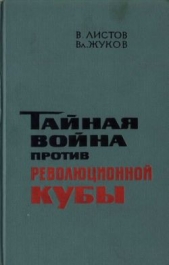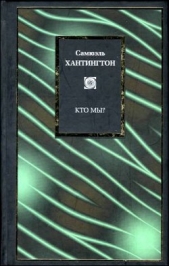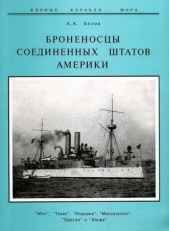Конституция США

Конституция США читать книгу онлайн
Конституция США – сравнительно краткий документ. В ней содержится приблизительно 7 тыс. слов. Она включает три компонента:
1) Преамбула, которая не признается судами и американской доктриной за составную часть закона, а рассматривается только с точки зрения источника, от которого она исходит, и целей, ради которых она выработана.
2) Семь статей, обозначенных римскими цифрами, занимающих иногда до нескольких страниц. Большинство статей делятся на разделы. Статьи главным образом определяют структуру органов государственной власти и регулируют их взаимоотношения, построенные на принципе сдержек и противовесов, т.е. распределяет компетенцию на федеральном уровне (статьи I–III), между союзом и штатами (статьи I и IV); устанавливают порядок изменения самого основного закона (статья V); содержат разноплановые положения в статье VI, часть из которых утратила силу (о признании США доконституционных долгов), а другие, наоборот, приобрели особое значение (нормы о соотношении внутреннего и международного права). Статья VII говорит о вступлении в силу самой конституции. Если характеризовать текст, содержащийся в статьях, то можно отметить, что он на первый взгляд кажется простым, логичным, сжатым и небольшим по объему, хотя при более внимательном рассмотрении в нем много нечеткого, неконкретного и противоречивого. Он изобилует общими выражениями, отсутствуют положения о важнейших институтах политической и государственной власти – о конституционном контроле, политических партиях, исполнительном аппарате, поверхностно характеризуется порядок избрания высших должностных лиц и органов, парламентская процедура.
3) 27 поправок, последняя из которых была принята в 1992 году. Поправки призваны пополнять содержащиеся в Конституции пробелы. Так, первые 10 поправок, носящие название Билль о правах, закрепляют свободу вероисповедания, свободу слова, печати, право обращения с петициями к правительству, право ношения оружия, неприкосновенность жилища и личности, право собственности, право на скорый и публичный суд, запрещение вторичного обвинения по одному и тому же делу и избирательное право. К настоящему времени некоторые поправки изменили положения предыдущих поправок, которые в свою очередь модифицировали первоначальный текст (например, последовательное преобразование и уточнение порядка избрания и замещения должностей президента и вице-президента, установленного в ст. II и поправках XII, XX и XXV). Все принятые поправки дописываются к основному тексту, а отмененный текст не устраняется, что затрудняет понимание.
Конституция США относится к жестким конституциям. Поправки к ней могут быть приняты 2/3 членов обеих палат высшего законодательного органа – Конгресса – либо специальным конвентом, созванным по инициативе 2/3 штатов (случаев такого созыва не было). Они подлежат ратификации (утверждению) законодательными собраниями 3/4 штатов либо 3/4 конвента штатов, созванных по решению федерального конгресса (ст. V).
Конституционный контроль осуществляется общими судами, а окончательное решение по федеральным актам принимает Верховный суд США, по актам штатов – обычно верховные суды штатов, но и в последнем случае по жалобе стороны (если эта жалоба пройдет необходимые судебные инстанции) верховный суд США может принять окончательное решение.
Внимание! Книга может содержать контент только для совершеннолетних. Для несовершеннолетних чтение данного контента СТРОГО ЗАПРЕЩЕНО! Если в книге присутствует наличие пропаганды ЛГБТ и другого, запрещенного контента - просьба написать на почту [email protected] для удаления материала
Section 10
Limits on States
No state shall enter into any treaty, alliance, or confederation; grant letters of marque and reprisal; coin money; emit bills of credit; make anything but gold and silver coin a tender in payment of debts; pass any bill of attainder, ex post facto law, or law impairing the obligation of contracts, or grant any title of nobility.
No state shall, without the consent of the Congress, lay any imposts or duties on imports or exports, except what may be absolutely necessary for executing it's inspection laws: and the net produce of all duties and imposts, laid by any state on imports or exports, shall be for the use of the treasury of the United States; and all such laws shall be subject to the revision and control of the Congress.
No state shall, without the consent of Congress, lay any duty of tonnage, keep troops, or ships of war in time of peace, enter into any agreement or compact with another state, or with a foreign power, or engage in war, unless actually invaded, or in such imminent danger as will not admit of delay.

Article II
The Executive Branch
Section 1
Election, Installation, Removal
The executive power shall be vested in a President of the United States of America. He shall hold his office during the term of four years, and, together with the Vice President, chosen for the same term, be elected, as follows:
Each state shall appoint, in such manner as the Legislature thereof may direct, a number of electors, equal to the whole number of Senators and Representatives to which the State may be entitled in the Congress: but no Senator or Representative, or person holding an office of trust or profit under the United States, shall be appointed an elector.
The electors shall meet in their respective states, and vote by ballot for two persons, of whom one at least shall not be an inhabitant of the same state with themselves. And they shall make a list of all the persons voted for, and of the number of votes for each; which list they shall sign and certify, and transmit sealed to the seat of the government of the United States, directed to the President of the Senate. The President of the Senate shall, in the presence of the Senate and House of Representatives, open all the certificates, and the votes shall then be counted. The person having the greatest number of votes shall be the President, if such number be a majority of the whole number of electors appointed; and if there be more than one who have such majority, and have an equal number of votes, then the House of Representatives shall immediately choose by ballot one of them for President; and if no person have a majority, then from the five highest on the list the said House shall in like manner choose the President. But in choosing the President, the votes shall be taken by States, the representation from each state having one vote; A quorum for this purpose shall consist of a member or members from two thirds of the states, and a majority of all the states shall be necessary to a choice. In every case, after the choice of the President, the person having the greatest number of votes of the electors shall be the Vice President. But if there should remain two or more who have equal votes, the Senate shall choose from them by ballot the Vice President.
The Congress may determine the time of choosing the electors, and the day on which they shall give their votes; which day shall be the same throughout the United States.
No person except a natural born citizen, or a citizen of the United States, at the time of the adoption of this Constitution, shall be eligible to the office of President; neither shall any person be eligible to that office who shall not have attained to the age of thirty five years, and been fourteen Years a resident within the United States.
In case of the removal of the President from office, or of his death, resignation, or inability to discharge the powers and duties of the said office, the same shall devolve on the Vice President, and the Congress may by law provide for the case of removal, death, resignation or inability, both of the President and Vice President, declaring what officer shall then act as President, and such officer shall act accordingly, until the disability be removed, or a President shall be elected.
The President shall, at stated times, receive for his services, a compensation, which shall neither be increased nor diminished during the period for which he shall have been elected, and he shall not receive within that period any other emolument from the United States, or any of them.
Before he enter on the execution of his office, he shall take the following oath or affirmation:-"I do solemnly swear (or affirm) that I will faithfully execute the office of President of the United States, and will to the best of my ability, preserve, protect and defend the Constitution of the United States."
Section 2
Presidential Power
The President shall be commander in chief of the Army and Navy of the United States, and of the militia of the several states, when called into the actual service of the United States; he may require the opinion, in writing, of the principal officer in each of the executive departments, upon any subject relating to the duties of their respective offices, and he shall have power to grant reprieves and pardons for offenses against the United States, except in cases of impeachment.
He shall have power, by and with the advice and consent of the Senate, to make treaties, provided two thirds of the Senators present concur; and he shall nominate, and by and with the advice and consent of the Senate, shall appoint ambassadors, other public ministers and consuls, judges of the Supreme Court, and all other officers of the United States, whose appointments are not herein otherwise provided for, and which shall be established by law: but the Congress may by law vest the appointment of such inferior officers, as they think proper, in the President alone, in the courts of law, or in the heads of departments.
The President shall have power to fill up all vacancies that may happen during the recess of the Senate, by granting commissions which shall expire at the end of their next session.
Section 3
State of the Union, Receive Ambassadors, Laws Faithfully Executed, Commission Officers
He shall from time to time give to the Congress information of the state of the union, and recommend to their consideration such measures as he shall judge necessary and expedient; he may, on extraordinary occasions, convene both Houses, or either of them, and in case of disagreement between them, with respect to the time of adjournment, he may adjourn them to such time as he shall think proper; he shall receive ambassadors and other public ministers; he shall take care that the laws be faithfully executed, and shall commission all the officers of the United States.


























